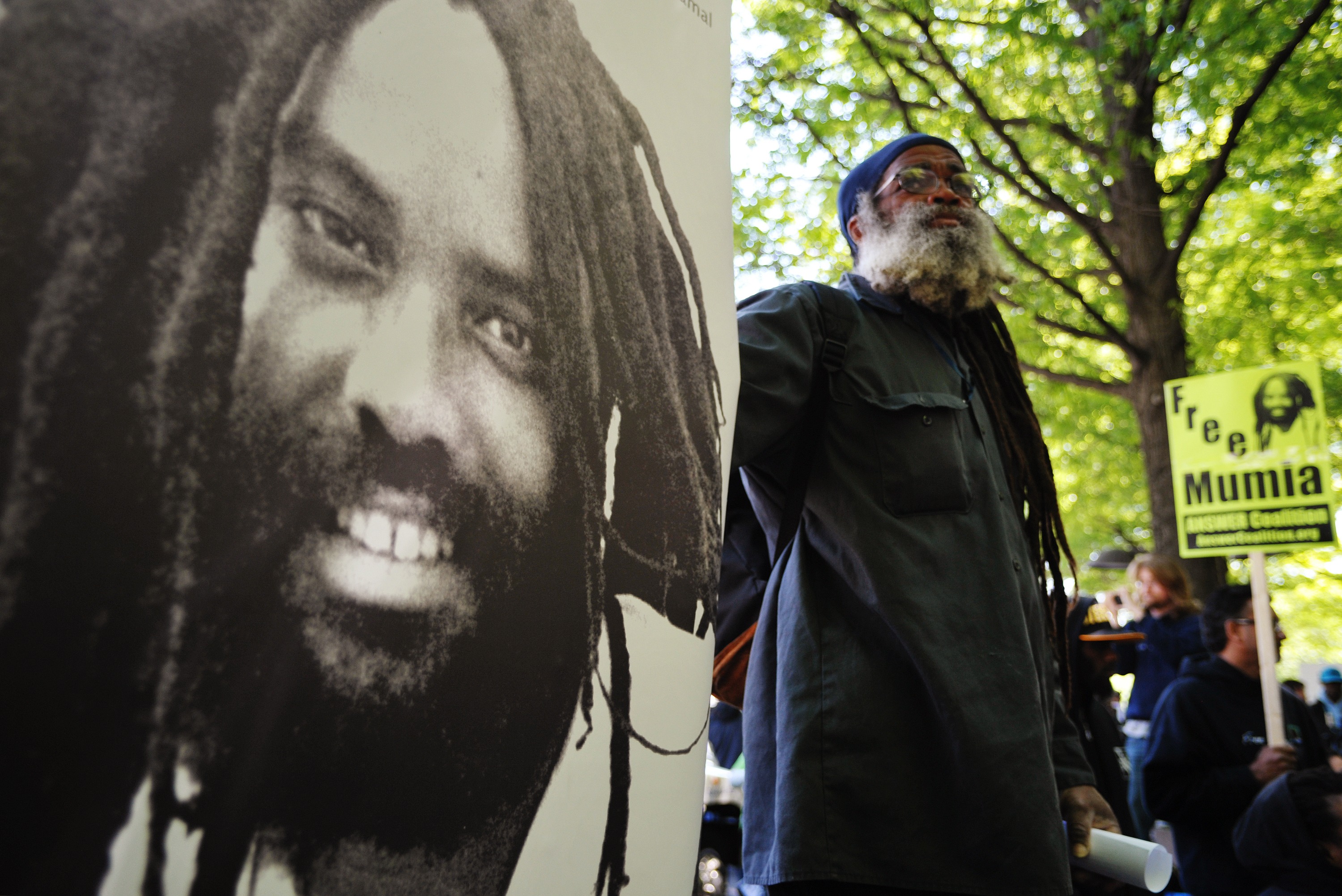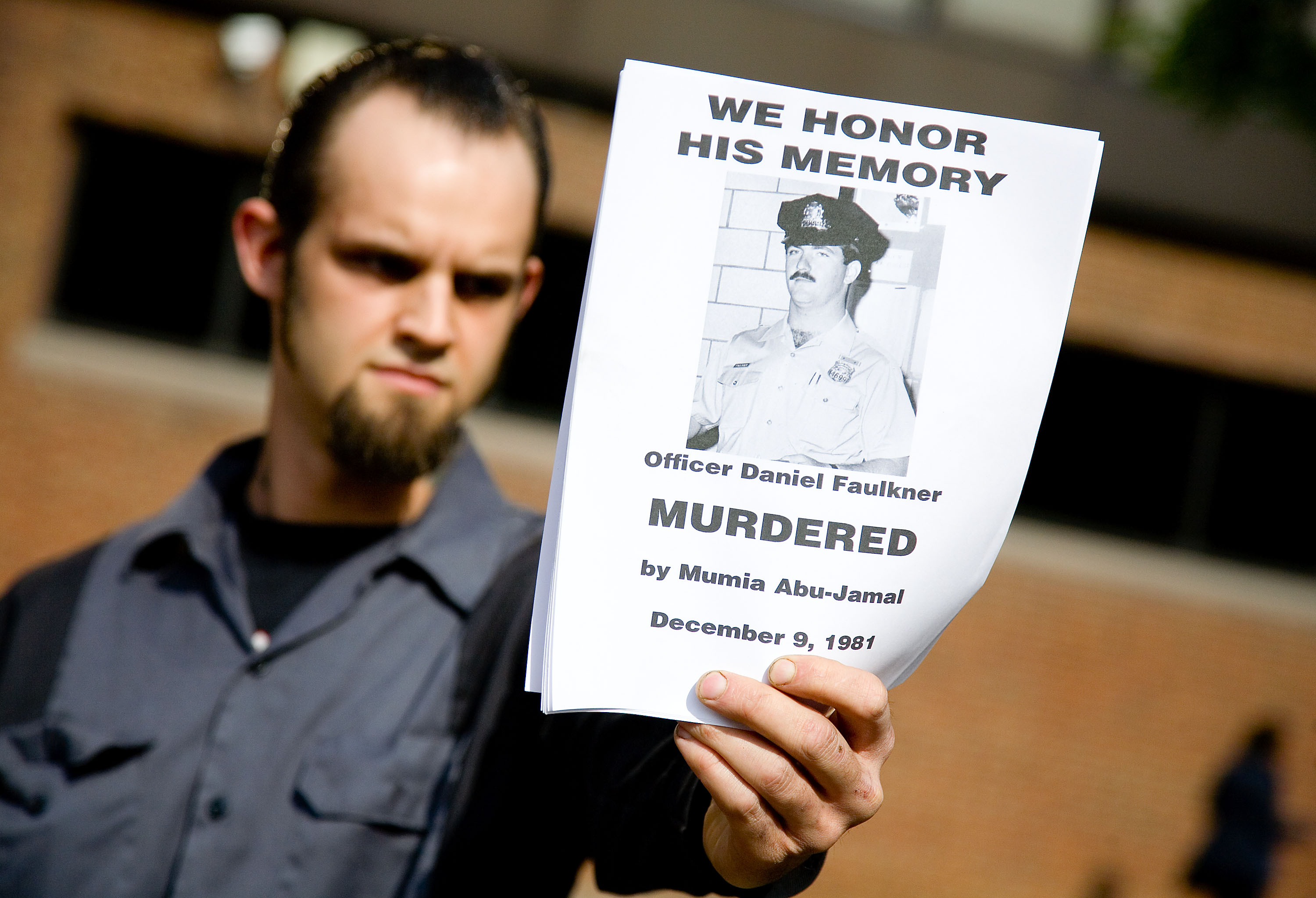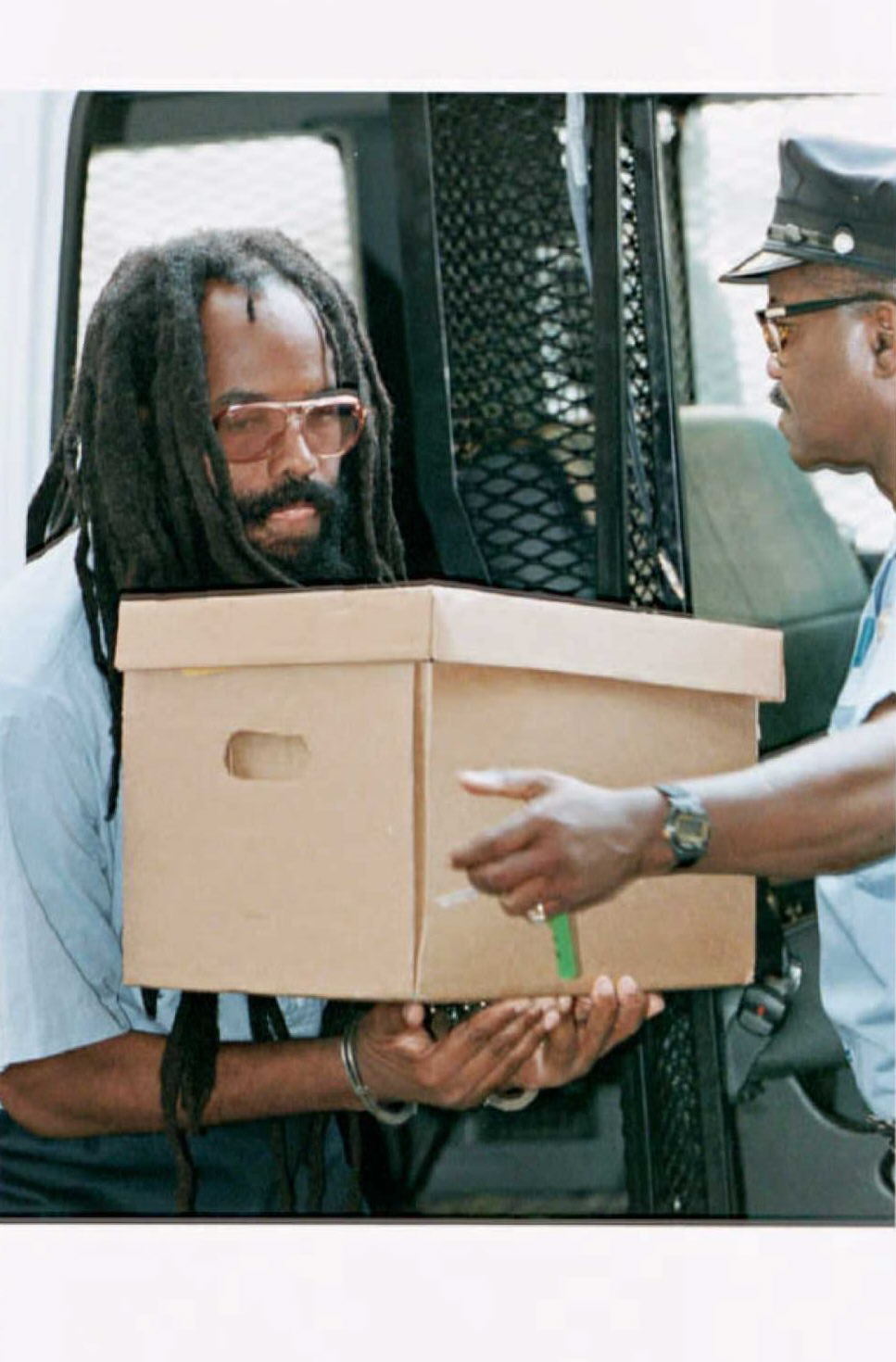
A protester stands next to an image of Mumia Abu-Jamal outside the U.S. Department of Justice on April 24, 2012, in Washington, D.C. (Getty)
Mumia Abu-Jamal, a former Black Panther serving a life sentence for killing Philadelphia police Officer Daniel Faulkner in 1981, has been hospitalized with an unspecified illness, according to a Facebook page run by his supporters.
Abu-Jamal, who was formerly on Death Row, has had his conviction held up through numerous appeals but has gained international attention and many supporters who consider him to be the innocent victim of a racist criminal justice system.
Here’s what you need to know:
1. He Was Taken to the Hospital After a ‘Medical Emergency’
According to his attorney, Abu-Jamal, 60, was taken to Schuylkill Medical Center in Pottsville, Pennsylvania after an unspecified “medical emergency,” NBC Philadelphia reports.
His supporters said on Facebook that Abu-Jamal is being treated in the hospital’s intensive care unit.
He was taken to the hospital at about 1 p.m. from the Mahanoy State Correctional Institution, the medium security facility where Abu-Jamal is serving his sentence.
Family members are fighting to be allowed to see Abu-Jamal, his supporters say.
2. He Suffers From Diabetes
Some supporters say Abu-Jamal, who is known to suffer from diabetes, is in the ICU in a diabetic coma.
Prison officials have said they will not comment on the medical condition of any inmates, and the hospital has also not commented, according to WPVI-TV. Abu-Jamal’s attorney says he has not been able to find out why his client is in the hospital.
3. Abu-Jamal Was Convicted of Killing Officer Faulkner During a Traffic Stop

A counter protester holds a handbill in remembrance of slain police officer Daniel Faulkner at a rally for Faulker’s convicted murderer, death-row inmate Mumia Abu-Jamal, outside the Federal Court building May 17, 2007, in Philadelphia. (Getty)
Abu-Jamal, born Wesley Cook, was a member of the Black Panther Party until 1970, becoming a radio journalist. He often protested police brutality during his time with the Black Panthers.
On Dec. 9, 1981, Abu-Jamal’s brother, William Cook, was pulled over by Officer Daniel Faulkner in Philadelphia, according to the New York Times and other reports of the case. Faulkner was shot in the back once and then again while lying on the street. Abu-Jamal was injured by a shot from Faulkner. Police officers and a security guard at the hospital claimed they heard Abu-Jamal shout “I shot the m**herf***er, and I hope the m**herf***er dies.”
He was arrested and charged with first-degree murder and sentenced to death in 1982 after being convicted at a trial. He spent 30 years on death row before his sentence was reduced to life without parole, the Times reported. But numerous appeals by Abu-Jamal failed.
Many human rights organizations and other activists question the impartiality of Abu-Jamal’s trial. Supporters of Abu-Jamal have been vociferously opposed by Faulkner’s family, police unions and the Pennsylvania government, which maintain that Abu-Jamal is guilty and received a fair trial.
4. He Was the Graduation Speaker for Goddard College in 2014
Controversy arose in 2014 when Abu-Jamal was named the commencement speaker at Goddard College, a small college located in Vermont. His speech was prerecorded and played on October 5 to the 23 graduating students at Goddard.
“As a reflection of Goddard’s individualized and transformational educational model, our commencements are intimate affairs where each student serves as her or his own valedictorian, and each class chooses its own speaker,” said Goddard College Interim President Bob Kenny. “Choosing Mumia as their commencement speaker, to me, shows how this newest group of Goddard graduates expresses their freedom to engage and think radically and critically in a world that often sets up barriers to do just that.”
Abu-Jamal’s speech was criticized by many, including Pennsylvania’s Department of Corrections Secretary John Wetzel. He told the Washington Post:
I cannot express my disdain enough about Goddard College’s decision to allow this individual to be a commencement speaker. We have a college allowing an individual convicted of murdering a police officer to share his opinions with impressionable students. This fact is very troubling.
He has hosted a radio show from prison and published several written works. He earned a bachelor’s degree from Goddard in 1996 and also gave commencement addresses in 1999 to Evergreen College students and in 2000 to graduate of Antioch College.
5. Pennsylvania Passed a Law Limiting Inmates’ Speech After the Commencement Address

Mumia Abu-Jamal carries a box of legal documents as he enters City Hall in Philadelphia for his appeals hearing. (Getty)
As a result of Abu-Jamal’s speech at Goddard, the Pennsylvania legislature and Governor Tom Corbett fast-tracked a law that opponents claim limits freedom of speech for felons.
According to the Washington Post, the law allows prosecutors and violent crime victims to sue the offender for “conduct which perpetuates the continuing effect of the crime on the victim.”
The law was signed by Corbett in October. It allows for felons to be sued either while in prison or after serving his or her sentence for causing “mental anguish.”


